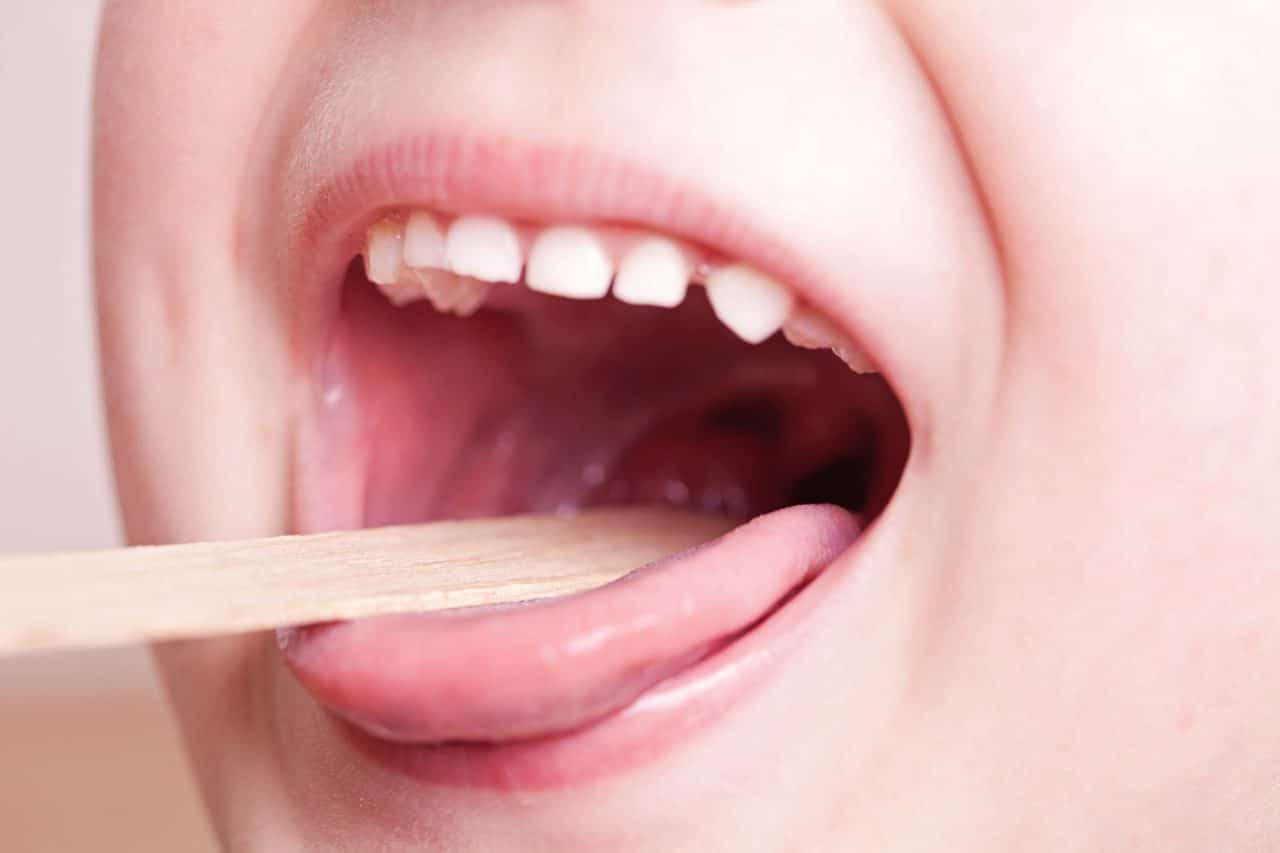Tonsil infections are a common childhood malady, bringing pain and discomfort to many children between the ages of five and 15. The result of inflamed tonsils, the condition – known as tonsillitis – is most often caused by a viral or bacterial infection.

While you are probably familiar with tonsillitis, did you know your child’s adenoids can also become infected? Adenoid infections typically only affect children; this is because the tissues begin to shrink around the age of 5 or 6, and disappear completely in most people by the time they reach their teens.
What Causes Tonsillitis/Adenoiditis?
The tonsils are a pair of oval-shaped tissues in the back of the throat and the adenoids are a pair of soft tissue masses located behind the nose and roof of the mouth. Both work to protect the body from infection by trapping bacteria and germs, preventing them from entering the airways.
In addition, they produce antibodies to fight infection. As the immune system’s first line of defense, the tonsils and adenoids come into frequent contact with germs, making them prone to infection themselves.
Viruses and bacteria, especially the Streptococcus bacterium (responsible for strep throat), are the most common causes of infection. Other causes include adenoviruses, influenza, Epstein-Barr virus, enteroviruses and herpes simplex virus.
What Are the Symptoms of Tonsillitis/Adenoiditis?
Sore throat and swollen, inflamed tonsils that may appear red with a white or yellow coating are the most recognizable symptoms of tonsil infection. Other signs include blisters on the throat, swollen glands in the neck or jaw, difficulty swallowing, fever, headache, chills, fatigue, ear pain and bad breath.
Enlarged adenoids can block airflow through your child’s nose, which can lead to mouth breathing, snoring and a dry and sore throat. Yellow or green discharge from the nose can also occur. In addition to swollen adenoids, infected adenoids can lead to middle ear infections, sinusitis and a chest infection.
How Are Tonsillitis/Adenoiditis Treated?
Diagnosing a tonsil and adenoid infection requires a physical examination and an in-depth exam of the throat and ears with an otoscope. Your child is likely to be given a throat swab to test for the presence of strep, as well.
In the past, the treatment method of choice was surgical removal of the tonsils and adenoids. Known as a tonsillectomy and an adenoidectomy (T&A if performed at the same time), these procedures are now reserved for chronic cases that do not respond to other forms of medical treatment.
Instead, home remedies are usually recommended for infections caused by a virus. Your child should get plenty of rest and stay hydrated with fluids. Warm broth or tea, and cold Popsicles, are particularly effective at soothing pain and discomfort.
Pain and fever can be controlled with over-the-counter medications like ibuprofen and acetaminophen (but avoid aspirin, which can be harmful in children). Throat lozenges or cough drops can be given to children over the age of four.
Call ENT Specialists Of Northern Virginia at (703) 644-7800 for more information or to schedule an appointment.